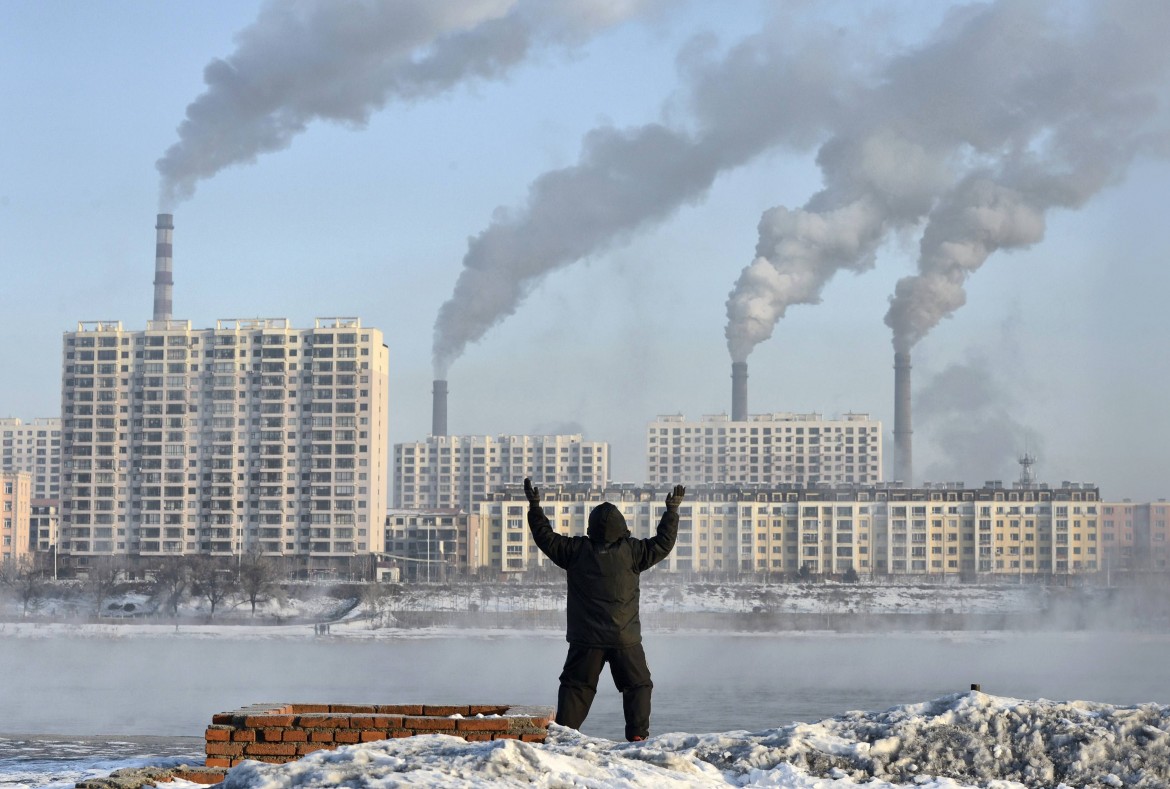Report
Lancet: Pollution kills 15 times more people than all wars
Illness caused by pollution caused 16 percent of deaths worldwide in 2015, according to a new study from The Lancet. The financial loss is estimated at $4.6 trillion a year.

“Pollution is the largest environmental cause of disease and premature death in the world today. Diseases caused by pollution were responsible for an estimated nine million premature deaths in 2015 — 16 percent of all deaths worldwide — three times more deaths than from AIDS, tuberculosis, and malaria combined and 15 times more than from all wars and other forms of violence. In the most severely affected countries,” low- and middle-income ones, where 92 percent of these fatal events occur, “pollution-related disease is responsible for more than one death in four.”
This is not the usual social media alarmism very much in vogue these days, but the words chosen by the scientific journal The Lancet in its introduction to the long and thorough research conducted by the “Lancet Commission on pollution and health,” made up of 47 scientists from around the world.
“The nature of pollution,” these experts explain, “is changing,” and “in many places around the world, it is worsening,” especially in countries undergoing rapid industrialization, such as India, Pakistan, China, Bangladesh, Madagascar and Kenya.
The causes can be traced to the increase in energy consumption deriving from fossil fuels and in the use of fossil-fuel-powered vehicles, the growth of extraction, the use of new materials and technologies, the overuse of herbicides and pesticides, and the effects of the global movement of populations from rural areas to cities, which are expanding uncontrollably.
It is air pollution that causes the majority of deaths (6.5 million worldwide in 2015), followed by water pollution (1.8 million), workplace pollution (800,000) and pollution involving lead (500,000).
Of course, the contamination of air, water and soil has an enormous cost, and not only in terms of human lives lost: the GDP of low- and middle-income countries is lowered by 2 percent per year due to lost productivity, while health care costs are seeing a rise of up to 7 percent (1.7 percent in high-income countries). “Welfare losses due to pollution are estimated to amount to $4.6 trillion per year: 6.2 percent of global economic output,” The Lancet writes, pointing out that the estimated costs are set to increase as more correlations are discovered between diseases and pollution.
Conversely, the significant economic benefits, in addition to the social ones, of a reduction in pollutants are evident, for instance in the U.S., where (before Trump) “every dollar invested in the control of air pollution since 1970” has yielded $30 in benefits, “which is an aggregate benefit of $1.5 trillion against an investment of $65 billion.”
Similarly, the report continues, “the removal of lead from gasoline has returned an estimated $200 billion (range, $110 billion-300 billion) to the U.S. economy each year since 1980, an aggregate benefit to-date of over $6 trillion through the increased cognitive function and enhanced economic productivity of generations of children exposed since birth to only low amounts of lead.”
This is why, among the six final recommendations of the Lancet Commission, the first is an admonition to governments around the world and administrations at every level to put pollution control at the top of their agendas. This is an issue in particular need of being addressed on a global level, which is the reason why both funding and “international technical support” are to be “mobilized, increased and focused,” and “broad-based partnerships across several government agencies and between governments and the private sector” must be built.
The researchers then recommend that we make use of the most innovative technologies to collect data on pollution, that we “integrate pollution mitigation” into the Global Action Plan for the Prevention and Control of Non-Communicable Diseases, and, finally, that we finance and promote further research in the field of polluting agents and their correlations with diseases.
The way forward is mapped out — not only a path available to us, but one that we simply cannot do otherwise but follow.
ENEA: a database of adverse health effects in Italy
Air pollution shortens the lifespan of every Italian, on average, by 10 months: 14 months for those who live in the north of Italy, 6.6 months for those who live in the center and 5.7 months for the inhabitants of the South and the islands. “But the higher values for the effects on mortality in the North should be read in light of the increased availability of information for that area compared to the rest of Italy.”
These are the words of Carmela Marino, head of the Technologies and Methodologies for the Protection of Human Health division at ENEA.
The data is the result of studies conducted by the Agency, which has created a map of the effects of air pollution on health — the first database in Italy that can provide information on mortality by age, sex and disease, down to the level of a single municipality.
Originally published at https://ilmanifesto.it/lancet-le-morti-per-smog-15-volte-quelle-delle-guerre/ on 2017-10-21
